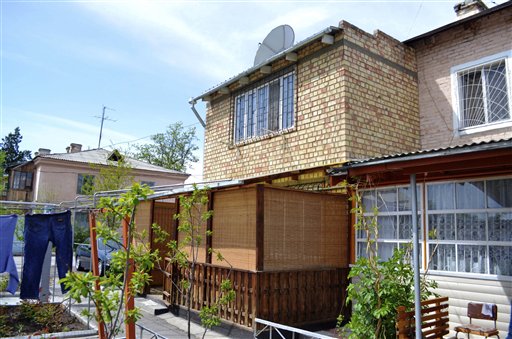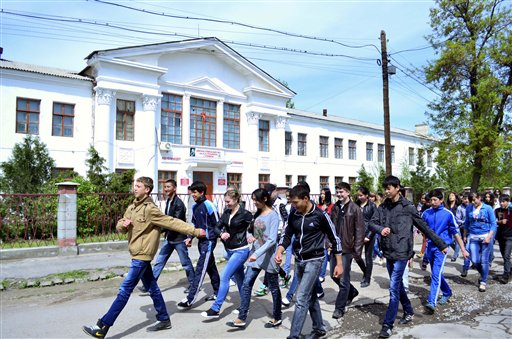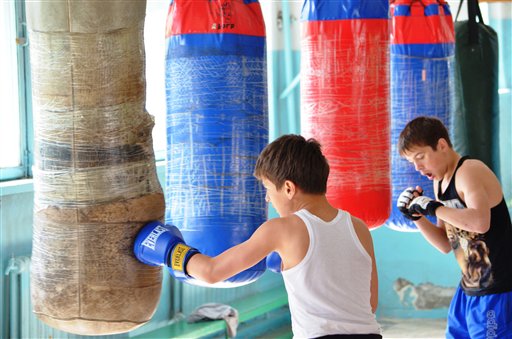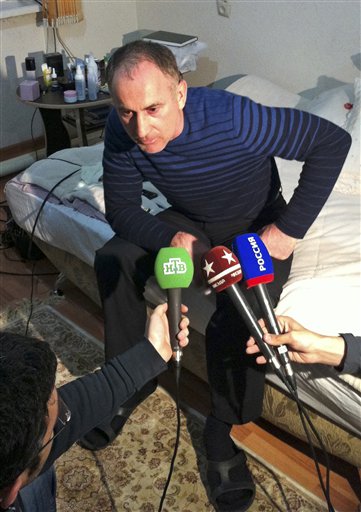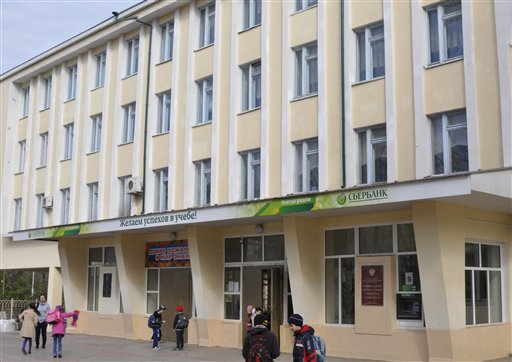TOKMOK, Kyrgyzstan — The two brothers accused of blowing up homemade bombs at the Boston Marathon came from a Chechen family that for decades had been tossed from one country to another by war and persecution.
Their father and former neighbors from Kyrgyzstan — home to many Chechens who were deported from their native villages by Soviet dictator Josef Stalin — tell of a family often on the move in search of safety and a better life.
Tamerlan Tsarnaev, 26, who was killed in a shootout, and his 19-year-old brother, Dzhokhar Tsarnaev, who was captured alive, had moved to the United States about a decade ago with their parents and two sisters. By all accounts, the younger brother had many friends, but his older brother felt alienated from American society and in recent years had turned increasingly to Islam.
Although neither spent much time in Chechnya, a province in southern Russia that has been torn apart by war and an Islamic insurgency, both strongly identified themselves as Chechens. They took up boxing and wrestling, two of the most popular sports in Chechnya, where people are proud of their warrior traditions.
The brothers’ story begins in Tokmok, a town about 35 miles from the capital of Kyrgyzstan, a country in Central Asia that was once part of the Soviet Union. Stalin rounded up the Chechens and shipped them east during World War II, seeing them as potentially disloyal. Their father, Anzor Tsarnaev, was born in Kyrgyzstan.
“This was a very good family,” Badrudi Tsokoev, a fellow Chechen who lived next door to the Tsarnaevs, said Saturday. “They all strove to get a higher education, to somehow set themselves up in life.”
The brothers’ grandfather had died tragically when a shell exploded as he was scavenging for metal that could be sold as scrap, neighbors said.
After the 1991 collapse of the Soviet Union, the family moved to Chechnya, only to have war break out in 1994 between Russian troops and Chechen separatists fighting for an independent homeland. Dzhokhar was born in 1993 and shares the name of Chechnya’s first separatist leader.
The fierce battles, which reduced much of Chechnya to rubble, sent the Tsarnaevs fleeing back to Kyrgyzstan with their two young sons, a daughter and another one on the way.
“As soon as the war started they came back,” said Nadezhda Nazarenko, another former neighbor in Tokmok. The children’s mother “described how they were in clothes they would wear only around the house and fled the bombing, managing only to grab their documents and a few things.”
Neighbors said Anzor Tsarnaev, who had studied law and previously served in the prosecutor’s office, worked hard to provide for his family.
“Soon they began to live well and renovated their home,” Nazarenko said. “The children did well in school and were well behaved.”
Russian troops rolled into Chechnya again in 1999 and took it under Moscow’s control. The same year, the Tsarnaev family moved back to Russia, according to Anzor Tsarnaev, settling briefly in Dagestan, which like neighboring Chechnya is a predominantly Muslim republic. They left from there in 2002 for the United States, joining relatives who had emigrated earlier.
Anzor Tsarnaev told The Associated Press that the move to the U.S. was motivated in part by a desire to escape discrimination against Chechens in Russia and Kyrgyzstan.
He returned about a year ago to Dagestan, which has become the epicenter of the Islamic insurgency that spilled over from Chechnya to spread throughout the North Caucasus region.
His elder son visited him last year, according to neighbors in Makhachkala, the capital of Dagestan.
No evidence has emerged to connect Tamerlan Tsarnaev with the insurgents, who have carried out a series of terrorist attacks in Russia. The FBI said it interviewed him in 2011 at the request of an unspecified foreign government and found nothing of concern at the time.
Anzor Tsarnaev visited his hometown in Kyrgyzstan last year, according to Tsokoev, the former neighbor. “He was very happy and proud of his sons’ success in the U.S.,” Tsokoev said. “We also were happy for him. He worked hard to give his children a good education.”
Tsarnaev, who worked as an auto mechanic in the U.S., seems unable to comprehend that his sons could have been involved in such a gruesome bombing.
“These children were brought up with kindness,” Tsarnaev said in an interview shown Saturday on Russian television. “We’re a family of lawyers, and everyone who knows us knows that.”
Send questions/comments to the editors.

